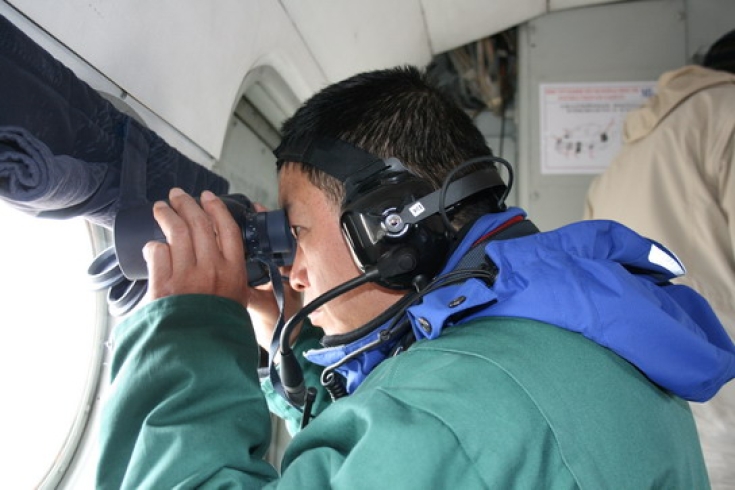Adapting the CTBTO to current developments
In light of current global developments, the Preparatory Commission for the Comprehensive Nuclear-Test-Ban Treaty Organization (CTBTO) is taking a close look at its priorities for the coming years. The more favourable political environment towards the Comprehensive Nuclear-Test-Ban Treaty (CTBT) including within the United States of America, and the world financial crisis, are some of the main factors that have led to this fresh look. The verification-related aspects of this were discussed by Member States at the meeting of the CTBTO’s Working Group on verification issues (WGB), which concluded on Friday 27 February 2009.
With regard to the new U.S. administration’s support for the CTBT, some Member States referred to the Treaty’s entry into force as now being “a realistic perspective in the near future”. Others cautioned that real perspectives for entry into force would also necessitate expressions of political will by the other States whose signature and ratification are preconditions for entry into force. Besides the United States, the other remaining so-called Annex 2 States, whose ratification is necessary for the Treaty to enter into force, are China, the Democratic People’s Republic of Korea (DPRK), Egypt, India, Indonesia, Israel, Iran and Pakistan.
Executive Secretary Tibor Tóth pointed out that, while it is still uncertain how much time is left until the Treaty enters into force, it might now be considerably less than previously anticipated in terms of preparing the organization and its verification regime to the level proscribed by the Treaty.
With regard to the new U.S. administration’s support for the CTBT, some Member States referred to the Treaty’s entry into force as now being “a realistic perspective in the near future”. Others cautioned that real perspectives for entry into force would also necessitate expressions of political will by the other States whose signature and ratification are preconditions for entry into force. Besides the United States, the other remaining so-called Annex 2 States, whose ratification is necessary for the Treaty to enter into force, are China, the Democratic People’s Republic of Korea (DPRK), Egypt, India, Indonesia, Israel, Iran and Pakistan.
Executive Secretary Tibor Tóth pointed out that, while it is still uncertain how much time is left until the Treaty enters into force, it might now be considerably less than previously anticipated in terms of preparing the organization and its verification regime to the level proscribed by the Treaty.
“If and when we come closer to that ultimate and long sought after goal of entry into force, there could be no excuses if we are not ready.”
Tóth therefore submitted an update to the Medium Term Plan (MTP), a proposal for the organization’s priorities for 2009 to 2013 originally issued by the Provisional Technical Secretariat (PTS) in February 2008. This entails prioritizing the MTP’s balanced approach to network completion, provisional operation and sustainment, improved quality and timeliness of analysis and data products, developing an effective on-site inspection (OSI) regime, and promoting support for the Treaty.
International Monitoring System
Of the 321 monitoring stations planned for the International Monitoring System (IMS), 264, or 82%, have already been built, of which 236 have also been certified. Tóth proposed focusing on the installation of the remaining stations, giving priority to the stations already under construction and new facilities that effectively enhance the overall performance of the IMS, particularly stations with noble gas detection. There was broad consensus on the necessity of minimizing downtime of the existing stations.
International Data Centre
With regard to the International Data Centre (IDC), efforts will focus on achieving and maintaining the required availability, timeliness and quality of data, as set out in the Operational Manuals. To that end, the IDC’s operational capacity will be enhanced. The IDC’s resources will be optimized to free up additional positions for monitoring and data analysis. The increased interest of Member States in IMS data and IDC products was reflected in a 23% increase of authorized Member States users in 2008.
Some of the main challenges that remain in preparing the IDC for entry into force are the planning for transition to continuous operations for after entry into force and the completion and enhancement of the system for processing, integrating and reviewing data from all IMS facilities.

The International Data Centre in Vienna, Austria.
On-Site-Inspections
Efforts related to on-site inspections will concentrate on the further evaluation of the September 2008 Integrated Field Exercise (IFE08) in Kazakhstan. In order to render this process as comprehensive and transparent as possible, Member States will be involved through WGB sessions, electronic bulletin boards, and workshops such as the second evaluation workshop that will take place in Baden, Austria, in May 2009.
The process will result in recommendations for improving on-site inspection procedures, in particular for establishing the necessary infrastructure and pool of experts to man the inspection teams. The aim is to enable the CTBTO to be prepared to launch an on-site inspection as foreseen by the Treaty by the time it enters into force.

Visual observation during the Integrated Field Exercise IFE08.
International Scientific Symposium
Through the International Scientific Studies (ISS) project, which was launched one year ago, the capability and readiness of all aspects of the CTBT’s verification regime will be assessed by independent scientists. The results of this evaluation process will be the main theme of the ISS conference, which will take place in Vienna from 10 to 12 June 2009. The project is part of a long-term effort to strengthen connections and cooperation with the scientific community in order to stay attuned to the latest relevant technical developments and to attract competent scientists to join the organization.

The International Scientific Studies Project will culminate in an international conference in June 2009
Prudent and creative use of financial resources
In view of the financial restraints caused by the current global economic situation, the organization is seeking to use its financial resources in the most prudent way possible. All sections and activities are undergoing scrutiny to determine ways to save funds. In order to maximize the performance of the verification regime in a cost-neutral and innovative way, the CTBTO is seeking to further harness the intellectual and practical capabilities of national experts. A pilot project supporting the participation of experts from developing countries in the CTBTO’s technical meetings has the same objective.